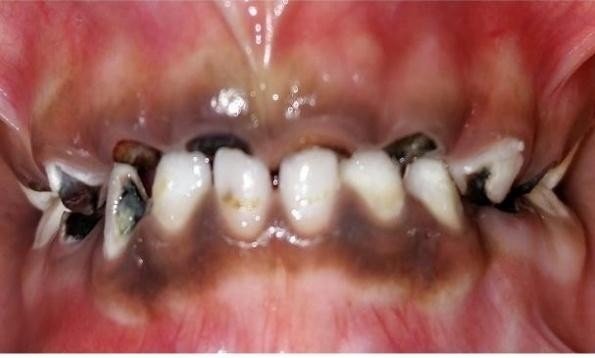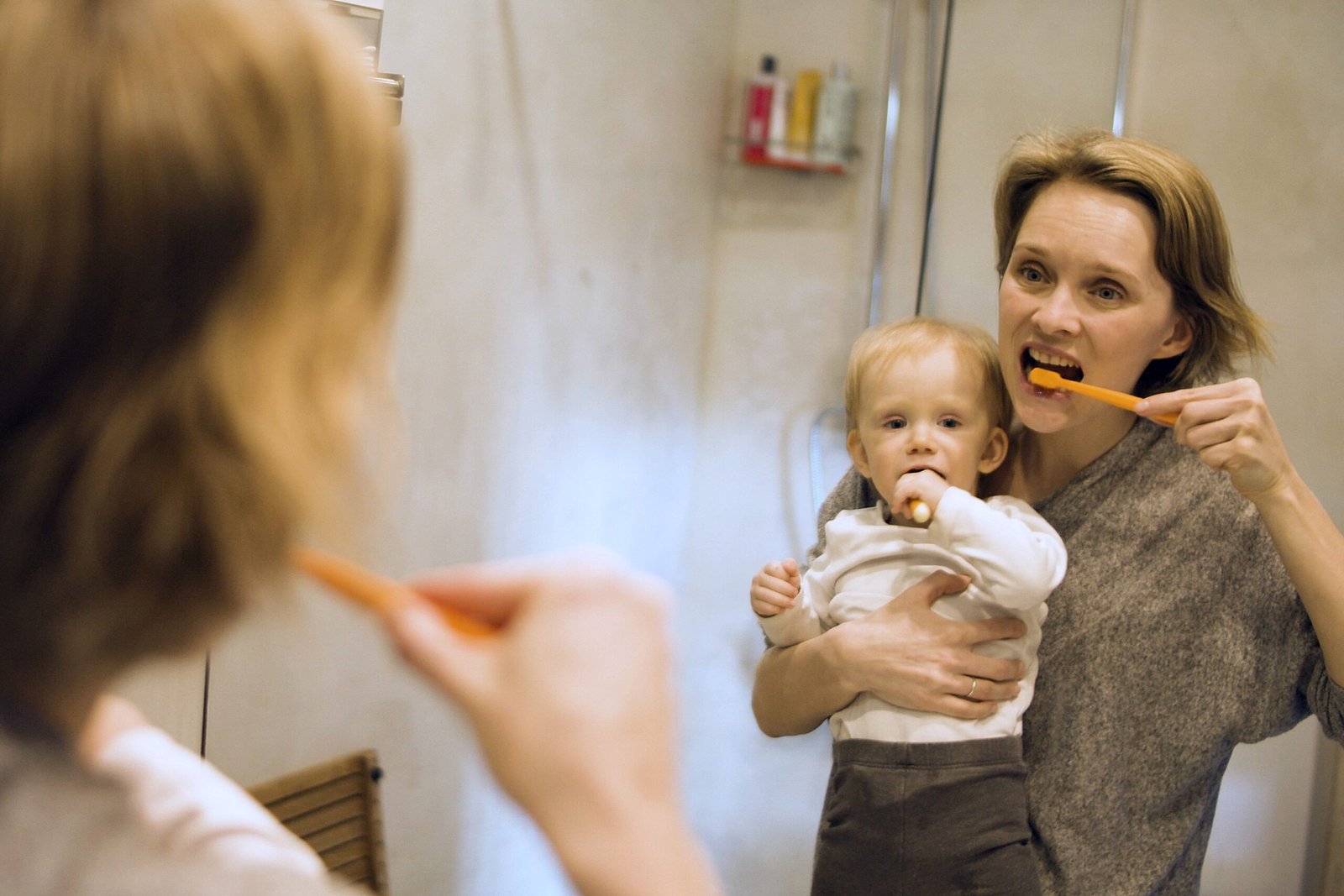A common doubt among most newly christened parents is about brushing kids teeth.“When should I begin brushing my kid’s teeth?” is the question that is asked very often. Most often, the advice they receive from elders, family and friends is to start brushing or cleaning their child’s teeth at 2 to 3 years of age. However, as experienced pediatric dentists, we beg to differ.
Home oral care for the infant should begin within a few days of the child’s birth.
The home oral care routine that should be followed by parents for infants can be sequentially divided as follows:
1. Oral Care Routine prior to the eruption of milk teeth
The infant’s oral care routine should begin prior to the eruption of his milk teeth. At this point in time, the mother is exclusively breastfeeding the child. She should make it a point to use a clean muslin cloth or a piece of sterile gauze to gently wipe and massage the child’s gums at least twice a day, in the morning and at night before sleeping. This will help to keep the kid’s mouth clean and prevent the accumulation of milk in the oral crevices.
Additionally, at 4-6 months of age, the child’s gums appear swollen and inflamed, as the milk teeth prepare to erupt. Massaging of the gums increases the blood circulation in the gums and can make the process of eruption more comfortable for the child.
Other oral care tips to keep in mind:
A. Difficulties in breastfeeding
If the mother experiences difficulties while breastfeeding the child; they should seek consultations with their paediatrician, lactation expert and an orofacial myotherapist.
Very often, the child’s feeding issues may stem from the presence of a restrictive tongue or lip attachment i.e. Tongue tie or lip ties. If allowed to persist, these tongue and lip ties can later, also affect the child’s speech and development of the face and jaws. Thus, tongue and lip ties need to be evaluated by trained experts, who can suggest their removal via a surgical procedure, when it is warranted.
B. Avoid bottle-feeding
Bottle feeding has been shown to adversely affect the growth and development of the child’s jaw and face; often leading to a proclined upper jaw and crowding of teeth.
Bottlefeeding should be performed only on medical advice, in cases where milk insufficiency is seen in mothers.
2. Oral Care Routine after the eruption of milk teeth
Once the infant’s teeth begin to erupt, the parents should commence brushing the child’s teeth.
Initially, when the child’s first tooth erupts, brushing can be performed using a finger brush to acquaint the child with the process. However, once a few more teeth have erupted in the mouth, the parents should switch over to using a regular age-appropriate children’s toothbrush with soft bristles.
Along with the toothbrush, parents should use a rice grain size amount of 500 ppm-1000ppm fluoridated toothpaste for brushing the child’s teeth in the morning and at night.
There are a number of non-fluoridated toothpaste formulations being commercially marketed in India. However, parents can rest assured that using a rice grain size of 1000ppm fluoridated toothpaste is absolutely safe for infants. In fact, fluoride in toothpaste plays a crucial role in maintaining good oral health in children.
Get our free printable lunch box love notes here
Other oral care tips to keep in mind:
A. Weaning of the child
During the eruption of milk teeth, parents should gradually attempt to wean the child off breast milk. Till the child is completely off breastmilk, along with brushing, the parents should wipe the child’s teeth with gauze or muslin cloth after every feed. Breastfeeding on demand at night should be avoided as far as possible.
Prolonged bottle feeding and breastfeeding can lead to the development of nursing bottle caries/early childhood caries in young children. Both processes allow the milk to pool around the child’s upper front teeth and continued exposure to the same can cause a cavity to develop on these teeth.

Image: Nursing bottle caries in a 3-year-old child
B.Visit to the pediatric dentist
Parents should consult a qualified pediatric dentist at the time of eruption of the child’s first tooth or by his first birthday. The pediatric dentist can guide you on how to care for your child’s teeth and be of great help in the case of any dental emergency that can occur in the future.
With the right care, you can ensure that your child remains caries-free!
About the authors:
Dr. Mala Jagtiani is a Senior Paediatric dentist at NH SRCC Children’s hospital who has been practicing in Mumbai for more than 25 years. She also runs an exclusive pediatric dental clinic of her own .Her focus is on preventive dentistry and she performs complete oral rehabilitation of young patients.
Dr.Nikhita Gune is a pediatric and preventive dentist at NH SRCC Children’s Hospital, Mumbai and also, works as a consultant at various private dental clinics and charitable trusts across Mumbai. A bibliophile from childhood, she believes in the power of the written word to bring about lifestyle changes in the new generation.
Agewise Dental Healthcare Tips- Dr. Harshal Fonseca
Get our free printable lunch box love notes here)

